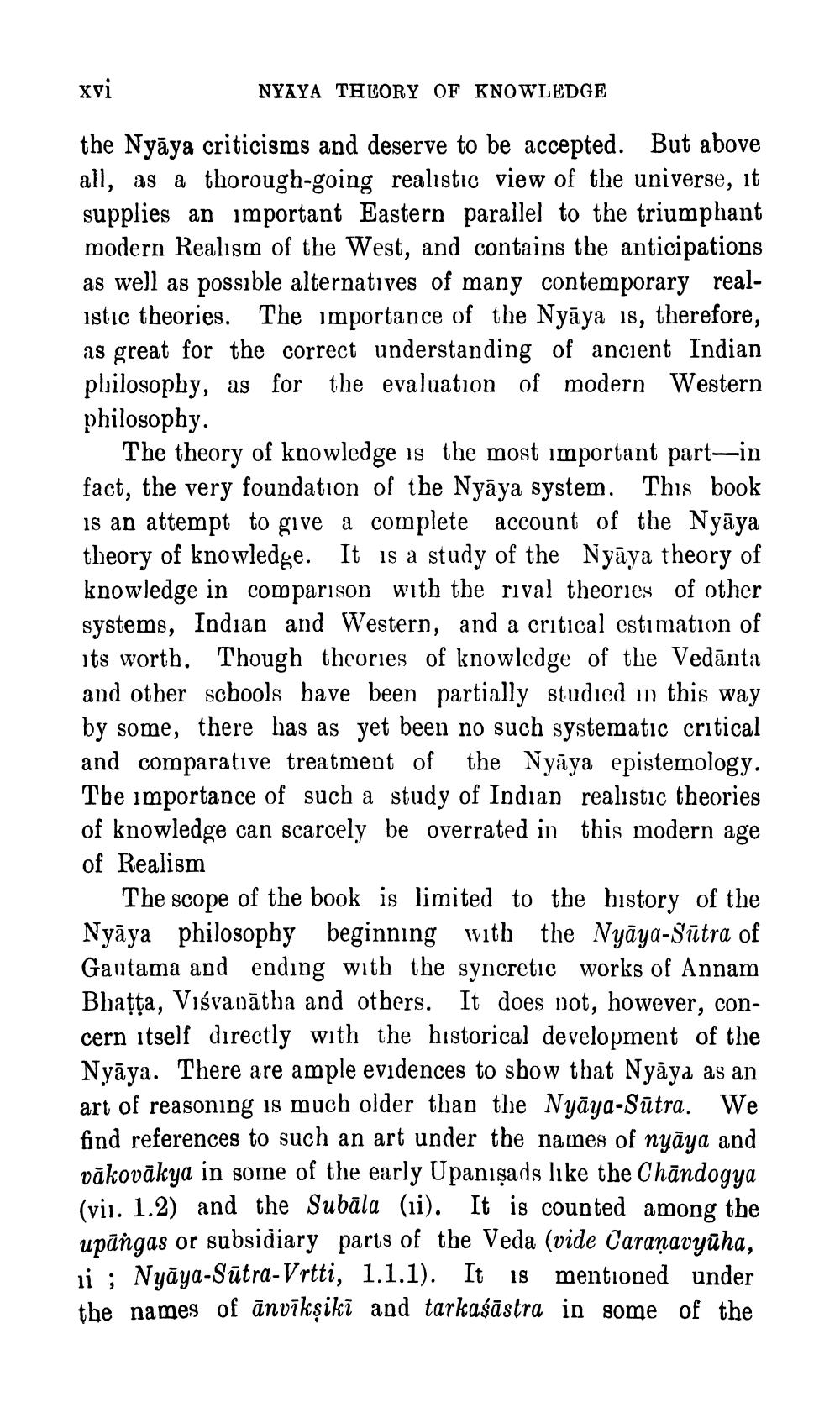________________
xvi
the Nyaya criticisms and deserve to be accepted. But above all, as a thorough-going realistic view of the universe, it supplies an important Eastern parallel to the triumphant modern Realism of the West, and contains the anticipations as well as possible alternatives of many contemporary realistic theories. The importance of the Nyaya is, therefore, as great for the correct understanding of ancient Indian philosophy, as for the evaluation of modern Western philosophy.
The theory of knowledge is the most important part-in fact, the very foundation of the Nyaya system. This book is an attempt to give a complete account of the Nyaya theory of knowledge. It is a study of the Nyaya theory of knowledge in comparison with the rival theories of other systems, Indian and Western, and a critical estimation of its worth. Though theories of knowledge of the Vedanta and other schools have been partially studied in this way by some, there has as yet been no such systematic critical and comparative treatment of the Nyaya epistemology. The importance of such a study of Indian realistic theories of knowledge can scarcely be overrated in this modern age of Realism
NYAYA THEORY OF KNOWLEDGE
The scope of the book is limited to the history of the Nyaya philosophy beginning with the Nyaya-Sūtra of Gautama and ending with the syncretic works of Annam Bhatta, Viśvanatha and others. It does not, however, concern itself directly with the historical development of the Nyaya. There are ample evidences to show that Nyaya as an art of reasoning is much older than the Nyaya-Sutra. We find references to such an art under the names of nyaya and vākovākya in some of the early Upanisads like the Chandogya (vil. 1.2) and the Subāla (i). It is counted among the upāñgas or subsidiary parts of the Veda (vide Caraṇavyūha, ii; Nyāya-Sūtra-Vrtti, 1.1.1). It 18 mentioned under the names of anvīkṣikī and tarkaṣāstra in some of the




